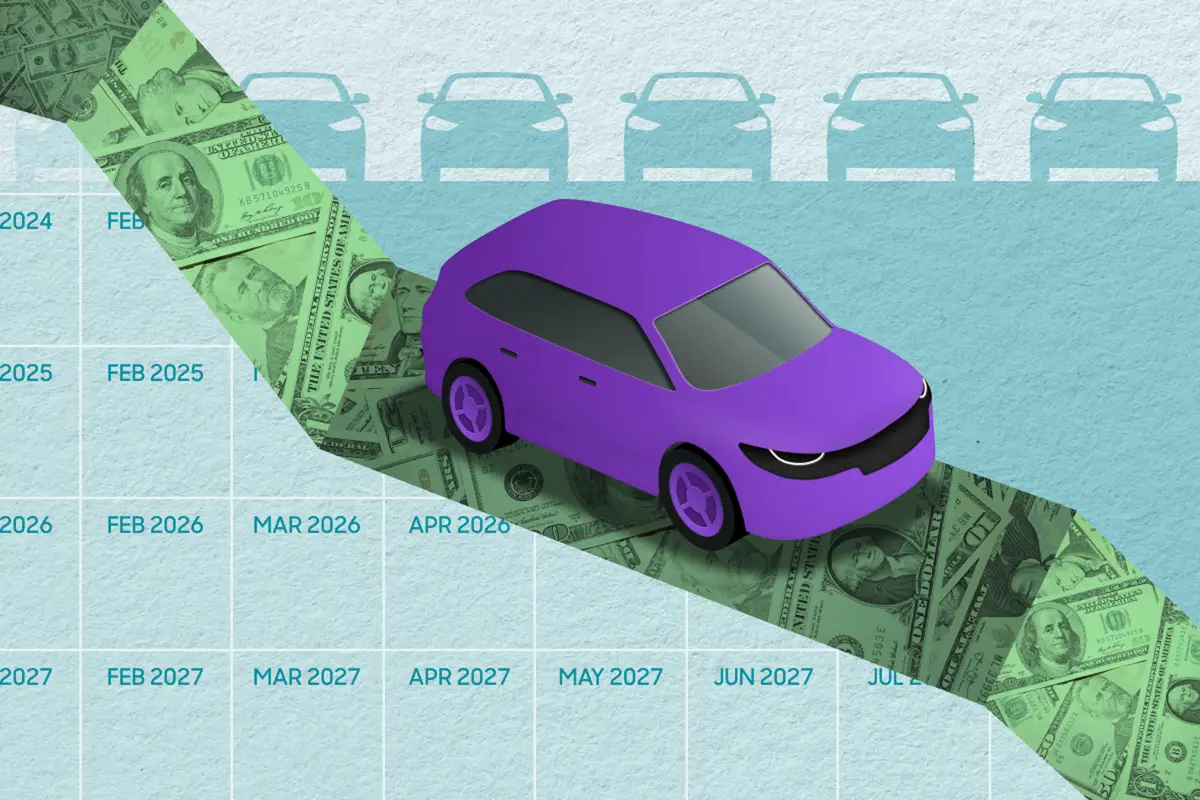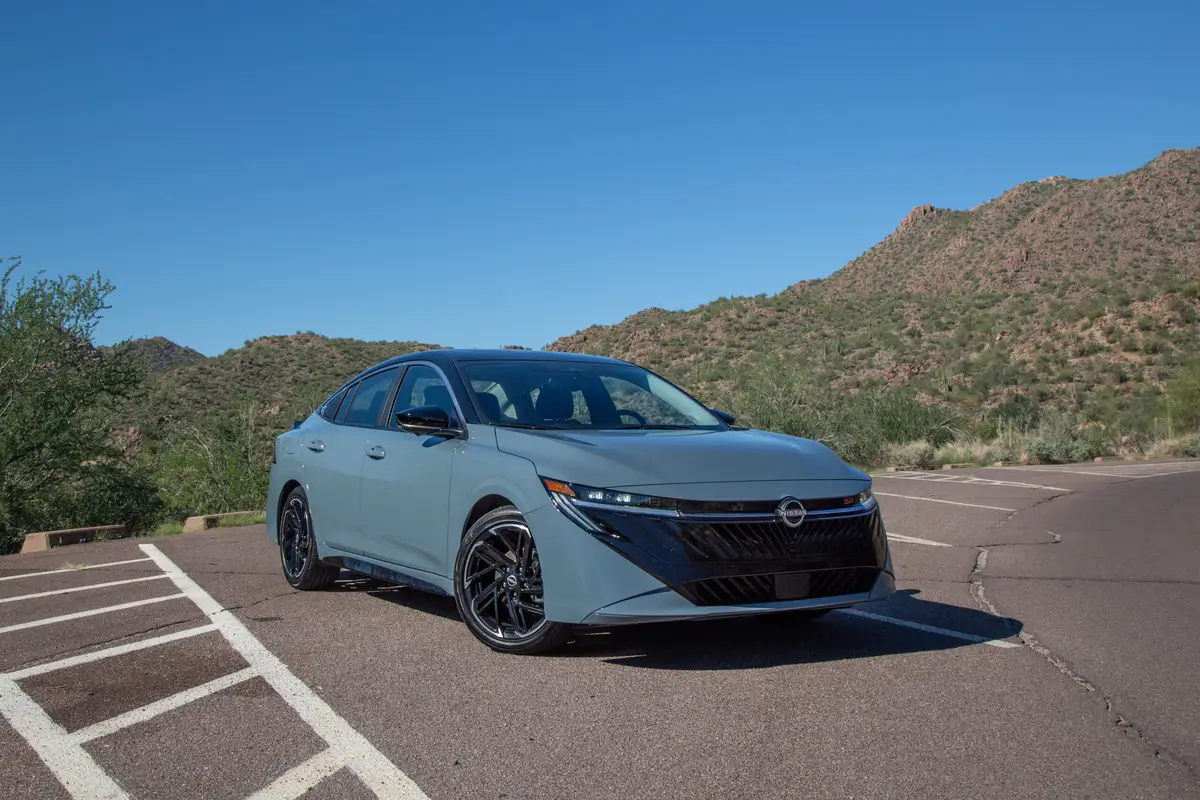15-Year Car Loans Aren’t a Thing, But Americans Are Getting More Comfortable With Long-Loan Terms

Key Points
- A rumor going around online stated that President Donald Trump has proposed 15-year auto loans.
- While not true, a 15-year auto loan wouldn’t financially be a good idea in the long run.
A wild idea recently started to make the rounds online that many were convinced was true after President Donald Trump floated the idea of a half-century mortgage. Shortly after this announcement, an image that appeared legitimate, bearing both the image and color scheme of an official White House announcement, claimed Trump had directed both the Transportation and Commerce secretaries to work on introducing 15-year auto loans. Thankfully, multiple news outlets have fact-checked the claim and deemed it to be false — and it’s likely for the best as long loan terms are a financial black hole.
Related: How Do You Get the Best Interest Rate on a Car Loan?
Long Loan Terms Are Never a Good Idea
Key Takeaways:
- Many Americans are pushing their auto terms further and further out to lower their payments.
- Those lower payments come at a price: more interest.
Let’s get the hypothetical out of the way first: A 15-year car loan would be a very bad idea if it existed. Sure, a buyer would be wooed by the low monthly payment, but that payment would come attached to a ton of interest over the life of the loan. As the saying goes, you win some, you lose some. Let’s put this into a financial perspective to illustrate just how bad this would be: Using the average new-car price of $49,360, no down payment and an interest rate of 7%, a buyer would pay nearly $30,500 in interest over the life of the loan.
While a 15-year loan doesn’t exist, more and more Americans are getting comfortable with longer loan terms. Through the second quarter of 2025, the average car buyer was financing their car for nearly six years with an average rate of 6.8% and a $749 monthly payment, according to credit agency Experian. With a 10% down payment, that works out to just over $9,800 in interest over the term of the loan. And when you get down to specific vehicle classes and brands, a worse picture starts to take shape.
Some Buyers Are More Willing to Take on Higher Rates and Longer Loan Terms
Key Takeaways:
- Buyers of pricey full-size SUVs have some of the highest average payments on the market and shell out a huge amount of interest during the life of the loan.
- Subprime buyers have high average terms and financing rates.
This ugly picture starts to get clearer with specific brands and segments. Take full-size SUVs, for example: This class has seen some of the highest price increases on everything from the average MSRP to destination charges. With the average full-size SUV MSRP being just under $83,000 as of October 2025, per Cars.com data, buyers with a six-year term and a 10% down payment are paying an average of $1,266 a month at the average 6.8% financing rate. This works out to just under $16,500 in interest over the life of the loan.
Even some electric-vehicle buyers are willing to engage in questionable car financing. Take Chevrolet’s popular Equinox EV, which has an average list price new of $41,532 as of October 2025. Buyers of the EV with a 72-month loan term and no down payment have payments of $704 a month at that 6.8% rate, shelling out an extra $9,163 in interest.
Subprime credit buyers are even worse off. According to Experian, subprime buyers have an average interest rate of 13.38% with an average loan term of 74 months. Highlighting the triple whammy of increasing interest rates, car prices and monthly payments, let’s look at the Nissan Altima, which has an average list price new of $30,005. On average, buyers taking on that 74-month loan term and high financing rate will have a payment of $548 a month when they put down 10% upfront. That interest rate and loan term mean that those Altima buyers are paying a total of $12,417 in interest. If that were a 15-year car loan, they’d pay more than $35,700 in interest alone — more than the initial cost of the vehicle itself — though their monthly payment would only be $348.
Read More Automotive Finance Advice:
- Can You Get a Car Loan With Bad Credit?
- How Many Years is 72 Months? (For Most Car Shoppers, Too Many)
- Can a CPO Car Help You Get a Better Auto Loan Rate?
- Inside the Finance and Insurance Room
- How to Buy a Car, According to Cars.com Experts
How Can You Avoid Long-Term Loans?
- Key Takeaway: The best thing a buyer can do is to read the fine print and know what they’re getting themselves into.
So, what’s a buyer to do in a market that doesn’t seem to favor affordability on any front? Shop smart, though even that can be hard. If you’re fortunate enough to have excellent credit, you likely won’t have to worry about any of this, but that also depends on what brand you’re in the market for. In this uncertain market, even buyers with excellent credit are getting hit with interest rates and loan terms that would have been unheard of a few years ago. For instance, play with Toyota’s payment estimator tool for something like a loaded Tacoma TRD Pro, and you’ll see it defaults to a 72-month loan term at 8.61% interest for someone with a credit score of 720 or higher.
The smart thing to do is to know what you’re getting into. Read the loan terms, don’t be so quick to sign on the dotted line, and do the math. These long loan terms often look like a great idea because they can lower monthly payments. And depending on the price of the car, that payment difference can be over $100 if you’re looking at a 60-month loan versus a 72-month loan, which can make any buyer think the longer term is the better bet. But depending on your financial situation and credit background, that longer loan term can be an enticing shovel that does nothing but help you dig yourself into a deeper hole over the life of the loan.
Related Video:
Cars.com’s Editorial department is your source for automotive news and reviews. In line with Cars.com’s long-standing ethics policy, editors and reviewers don’t accept gifts or free trips from automakers. The Editorial department is independent of Cars.com’s advertising, sales and sponsored content departments.
Featured stories




2026 Nissan Sentra Review: Long Live the Sedan

